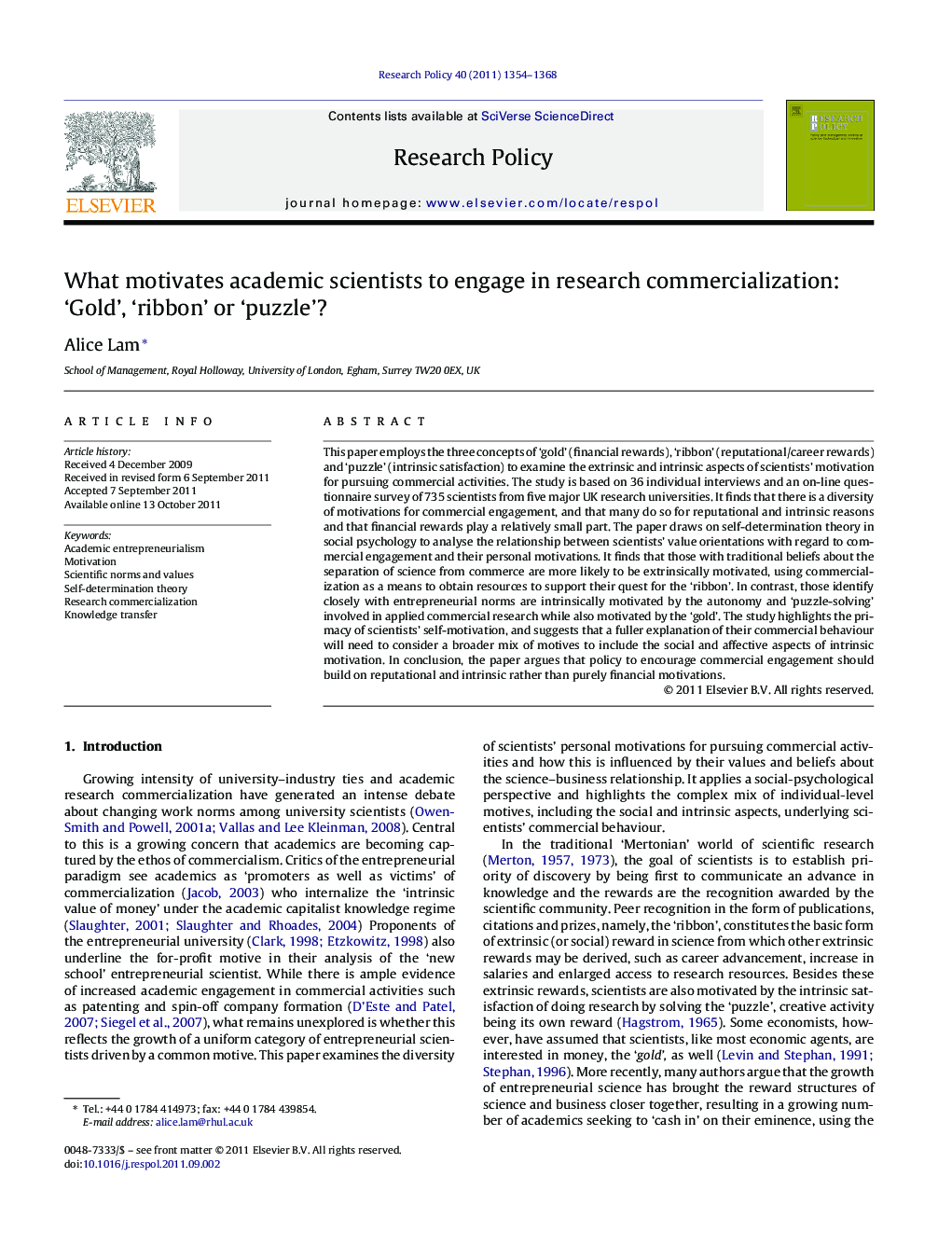| کد مقاله | کد نشریه | سال انتشار | مقاله انگلیسی | نسخه تمام متن |
|---|---|---|---|---|
| 985042 | 1480592 | 2011 | 15 صفحه PDF | دانلود رایگان |

This paper employs the three concepts of ‘gold’ (financial rewards), ‘ribbon’ (reputational/career rewards) and ‘puzzle’ (intrinsic satisfaction) to examine the extrinsic and intrinsic aspects of scientists’ motivation for pursuing commercial activities. The study is based on 36 individual interviews and an on-line questionnaire survey of 735 scientists from five major UK research universities. It finds that there is a diversity of motivations for commercial engagement, and that many do so for reputational and intrinsic reasons and that financial rewards play a relatively small part. The paper draws on self-determination theory in social psychology to analyse the relationship between scientists’ value orientations with regard to commercial engagement and their personal motivations. It finds that those with traditional beliefs about the separation of science from commerce are more likely to be extrinsically motivated, using commercialization as a means to obtain resources to support their quest for the ‘ribbon’. In contrast, those identify closely with entrepreneurial norms are intrinsically motivated by the autonomy and ‘puzzle-solving’ involved in applied commercial research while also motivated by the ‘gold’. The study highlights the primacy of scientists’ self-motivation, and suggests that a fuller explanation of their commercial behaviour will need to consider a broader mix of motives to include the social and affective aspects of intrinsic motivation. In conclusion, the paper argues that policy to encourage commercial engagement should build on reputational and intrinsic rather than purely financial motivations.
► The study applies a social-psychological perspective to examine scientists’ personal motivations for commercial engagement.
► Scientists engage in commercial activity for a diversity of motives and many doing so for reputational and intrinsic reasons.
► The relative importance of extrinsic and intrinsic motivations varies according to scientists’ values regarding the science-business relationship.
► Those with traditional values are more likely to engage out of extrinsic motivation, as a means to support professional and career goals.
► Those with entrepreneurial values are more likely to be intrinsically motivated by commercial ventures while also motivated by financial rewards.
► Policy to encourage commercial engagement should build on reputational and intrinsic rather than purely financial motivations.
Journal: Research Policy - Volume 40, Issue 10, December 2011, Pages 1354–1368